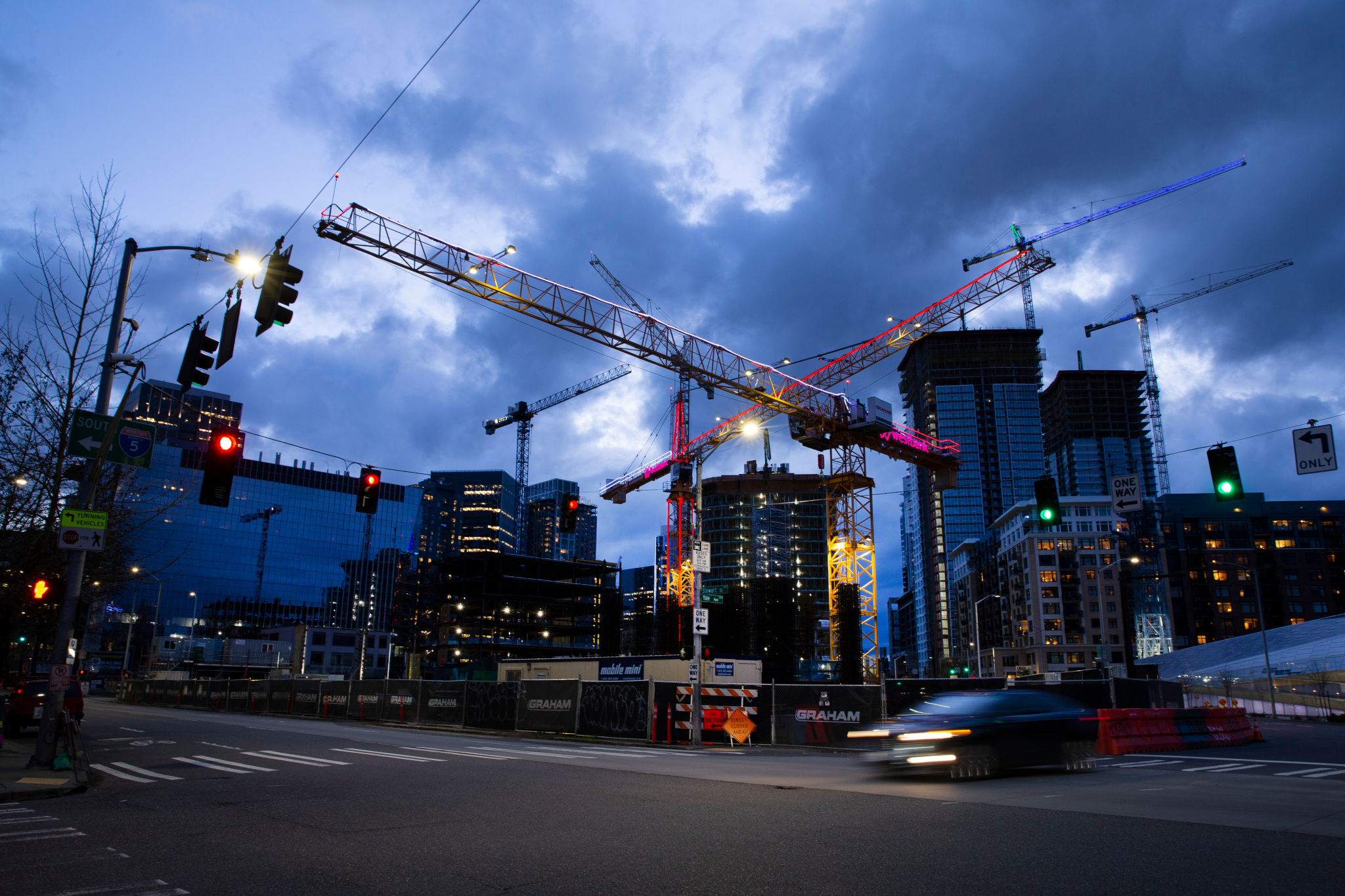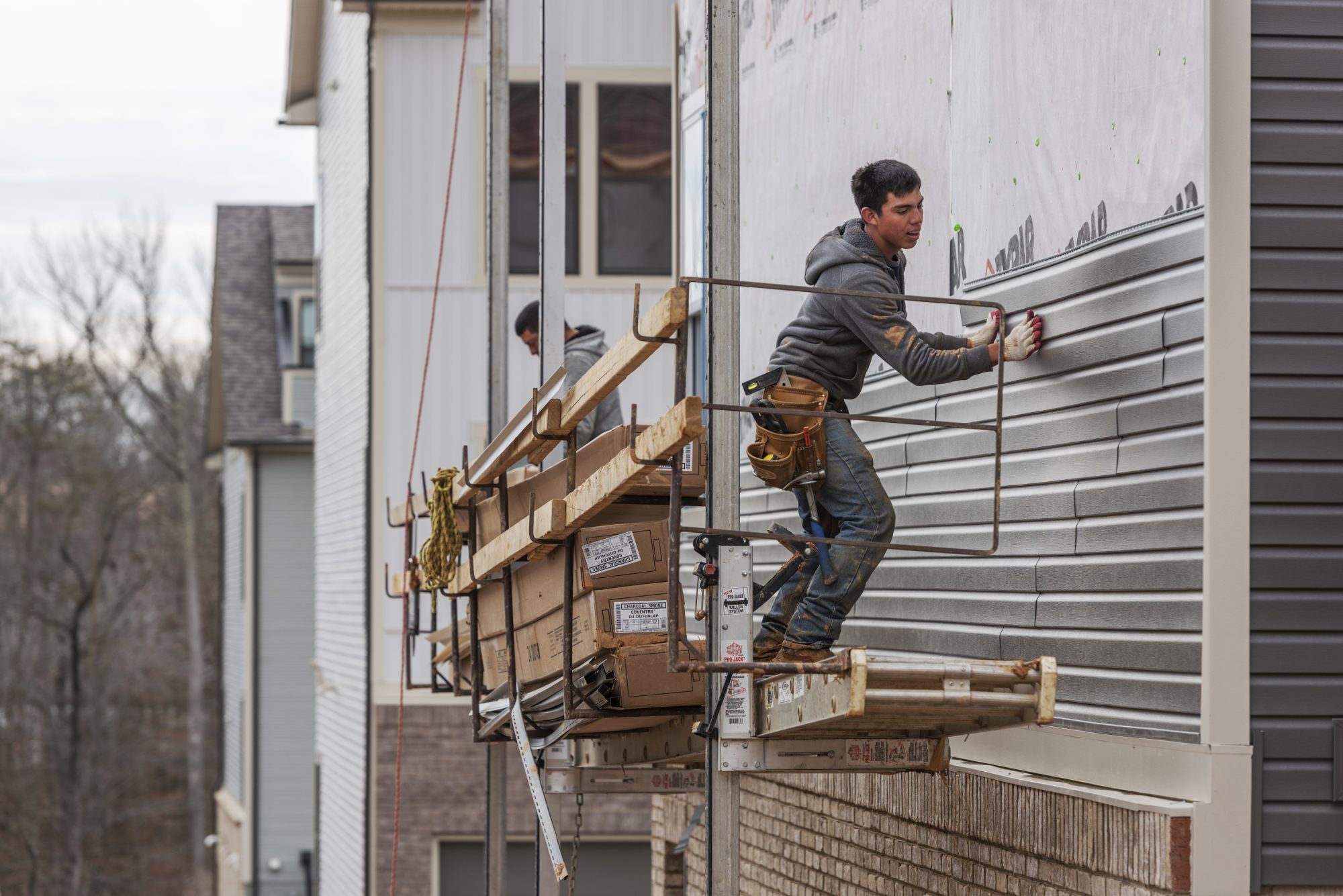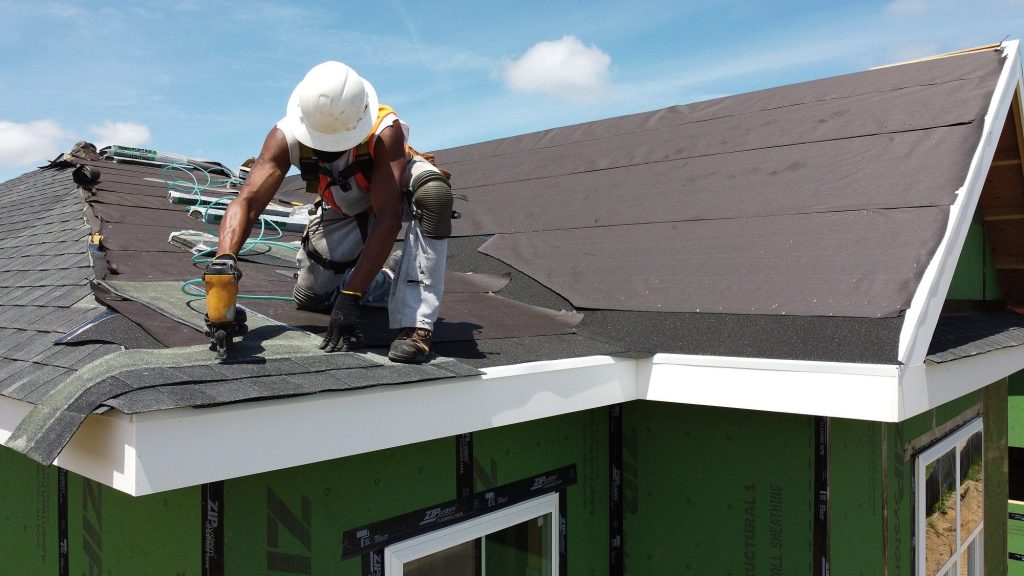This story was originally published by HuffPost and is reproduced here as part of the Climate Desk collaboration.
The private consortium that oversees the model building codes for much of the United States and parts of the Caribbean and Latin America stripped local governments of their right to vote on future energy-efficiency codes earlier this month.
The decision came more than a year after the construction and gas industry groups that wield heavy influence at the International Code Council, or ICC, objected to aggressive new energy codes for which government officials had voted.
The change, though technical and wonky, marks what environmental advocates say is one of the most consequential roadblocks to decarbonizing the U.S. economy. It also illustrates the limits of both the new Biden administration’s powers and the causes for which activists can mobilize public support. Local governments, members of Congress, environmentalists, and architects overwhelmingly opposed the proposal.
Under the new system, the building codes that govern energy systems and insulation ― once subject to a vote by the city and state governments tasked with implementing them ― will instead fall under a separate “standards” process that, despite soliciting input from local officials, will give industry more control over the outcome.
The ICC said it would create a new body to help oversee the process and give government officials “the strongest voice on the committee,” promising “one-third of the seats” on that entity to “government regulators.” It’s unclear which groups would occupy the other two thirds.
“Well, my sense is the committee will be comprised of people who have an interest in energy efficiency and building science,” Dominic Sims, the ICC’s chief executive, said in a phone interview. “So, I don’t know that there’s that big of a separation between people.”
The committee is a significant departure from the old process, which allowed government officials from across the country — including representatives from cities’ sustainability and energy departments — to register to vote on the codes.
Sims said it would actually hasten the transition away from fossil fuels.
“I will say this: The impetus and the discussion around this issue is not just about the last 12 months,” he said.“Each code cycle, it’s been different. There’s been winners and there’s been losers. That sort of unevenness has not produced quick enough results, or else we’d be at net-zero already.”
But city officials saw the move as a way for “private industry to maximize profit” and warned that it could encourage governments to shift away from using the ICC’s code.
“This is a classic example of leaving the fox to guard the hen house,” said Kim Havey, the sustainability director for the city of Minneapolis, who cast a vote in the last code-making cycle. “City leaders and their supporters will be meeting to discuss our options. One may be to ask the White House and Congress to throw the ICC in the compost bin of history and create a new oversight body to develop an energy code that works for the benefit of the people and our planet.”
The American Institute of Architects called the decision “a step backwards for climate action” that “will no doubt erode progress towards the modern codes that are desperately needed to heal our planet.”
Industry groups that supported the change cheered the March 4 announcement as a victory. The American Gas Association said it “supports the new framework released today by the International Code Council and believes that the new standards process is inclusive of the stakeholders needed to help ensure reasonable, viable efficiency improvements for the built environment.” The National Association of Home Builders called it “an important change that we expect to result in a model energy code that meets the needs of consumers, builders, building officials and energy efficiency advocates.”
In late 2019, hundreds of new government officials registered to vote with the ICC, drawing scrutiny from industry groups ― particularly the National Association of Home Builders and the American Gas Association. The last two rounds of codes, which are voted on every three years, had made only paltry 1 percent energy efficiency increases, so cities across the country enlisted more officials from sustainability, energy, and building departments to cast ballots.
Prior to 2019, most officials had been unaware that they qualified to vote in the highly technical process but were seeking new ways to slash emissions from buildings, the top source of climate pollution in most cities. Buildings use roughly 40 percent of all energy produced in the U.S. for heating, power, and cooking appliances, and generate a proportional share of the country’s planet-heating gases.
The government officials were clear about what they wanted. By a margin of 3 to 1, the voters whose ballots were tallied in December 2019 approved a slate of new measures to increase energy efficiency of the latest codes by up to 14 percent and require builders to include the circuitry needed to hook up electric vehicle chargers and fossil-fuel-free appliances.
“Many local governments don’t have their own building code authority, so they are really relying on this process,” said Amy Turner, a senior fellow at Columbia Law School’s Sabin Center for Climate Change Law. But now, she said, “it certainly seems that the ICC is setting the stage for an enhanced voice to be given to these trade groups.”

The measures sought to codify a trend already underway. More than half of homes built from 2010 to 2017 use electricity for space heating, water heating, cooking, and clothes drying, according to U.S. Census Bureau data. In February, Seattle became the latest city to start phasing out natural gas hookups in new buildings, following San Francisco and New York City.
The European Union already requires all buildings constructed in 2021 to be “nearly net-zero.” While industry groups warned that the stricter energy codes U.S. cities voted for risk raising the costs of building new homes, governments and advocates say adding energy efficiency retrofits to existing structures is even most expensive and politically challenging. For example, New York state proposed carve-outs earlier this year for landlords to circumvent New York City’s landmark law requiring big buildings to slash energy use in what advocates dubbed “a giant giveaway to real estate.”
Weeks after the 2019 vote, industry groups started to push back, arguing that the new mandates were too costly. The National Association of Home Builders, which had previously called low participation rates among government officials “a real problem,” said the record turnout now amounted to “voter manipulation.” The Leading Builders of America, another construction trade group, accused “special interests” of campaigning to “manipulate” the process. The American Gas Association appealed to the ICC to overturn many of the approved code requirements.
The ICC had long boasted that its governmental voting process left “the final determination of code provisions in the hands of public officials who, with no vested financial interest, can legitimately represent the public interest.”But it ultimately overturned some of the measures, including the requirement to ready new homes for electric vehicle chargers.
“We had more appeals than we have ever had, enough that it postponed the publication of our energy code by about six months,” Sims said. “That’s kind of telling.”
The ICC’s appeals board failed to find evidence to support challenges to the voters’ eligibility. Instead, the board, which included a longtime member of the National Association of Home Builders, proposed its own solution: Switching the energy code to a standard and limiting how much input government officials could have.
“We thought maybe this topic needs to be a standard and needs to be developed through the standards methods, which would be more deliberative,” Anne Anderson, a member of the appeals board, told HuffPost in February.
The proposal proved divisive within the ICC but narrowly passed in various committee votes. In January, when the ICC held a public hearing on the proposed change, opponents outnumbered supporters as city officials and architects pressed the nonprofit for answers on why this required an urgent change and pleaded for the executive board to abandon the plan.
“Please, please reconsider,” Kevin Burns, the mayor of Geneva, Illinois, said during his testimony.
“What’s the point of disenfranchising the voices of thousands of governmental members when this process has been so successful?” Christopher Chwedyk, a representative for the American Institute of Architects, asked during the hearing. “This is 100 percent unacceptable.”

Federal officials had limited power over the process since ICC codes are largely enshrined into state laws. But the proposed change attracted scrutiny from the nation’s capital.
Representative Frank Pallone, a New Jersey Democrat and chairman of the powerful House Committee on Energy and Commerce, pressed the ICC to explain why the National Association of Home Builders wields unique power over the group’s byzantine code-making bureaucracy. In a tweet the morning of Wednesday, March 3, he said he had “deep concerns over” the ICC’s “plan to silence state and local voices in the building energy code process.”
Senator Jeanne Shaheen of New Hampshire and Representative Peter Welch of Vermont, both Democrats, said in a letter sent to the ICC that same day that the existing system has “resulted in substantial energy savings over time” and warned that the proposed change “will likely derail and slow this progress.”
The Biden administration echoed the concerns at the end of February. In a letter to ICC leadership, Kelly Speakes-Backman, the Energy Department’s acting assistant secretary for energy efficiency and renewable energy, asked the code-making group to “not proceed with these proposed changes until these questions and concerns can be adequately addressed.”
The ICC responded a day later, saying its proposed changes were “time sensitive.” A delay would be detrimental to “the adoption of the suite of I-Codes” for 2024, Sims wrote, referring to the various building codes the ICC creates. “Therefore, if the development process is to change, the process will need to be in place to realize a timely release.”
After the ICC’s decision, Welch called on the council to “reverse its decision and refocus on a forward-looking codes process that values a consensus based approach, driving energy efficiency and resiliency for the future.
“This decision is bad for local communities, the environment and green jobs,” Welch told HuffPost. “The ICC has decided to shelve the voices of local officials and the communities that they represent at the request of private entities looking out for their bottom lines.”
The Energy Department said its “position remains consistent to what was outlined in the February 25 letter to ICC.”
Unlike the hearing in January, the March 3 executive board meeting, where the ICC deliberated its final decision on the energy codes, took place behind closed doors. Sims said the 18-member executive board voted with “almost unanimity” to approve the changes. An ICC spokeswoman said it was 16 to 2.
“We need a broader consensus and we need a more energy-efficient code,” Sims said. “We need to walk and chew gum.”



